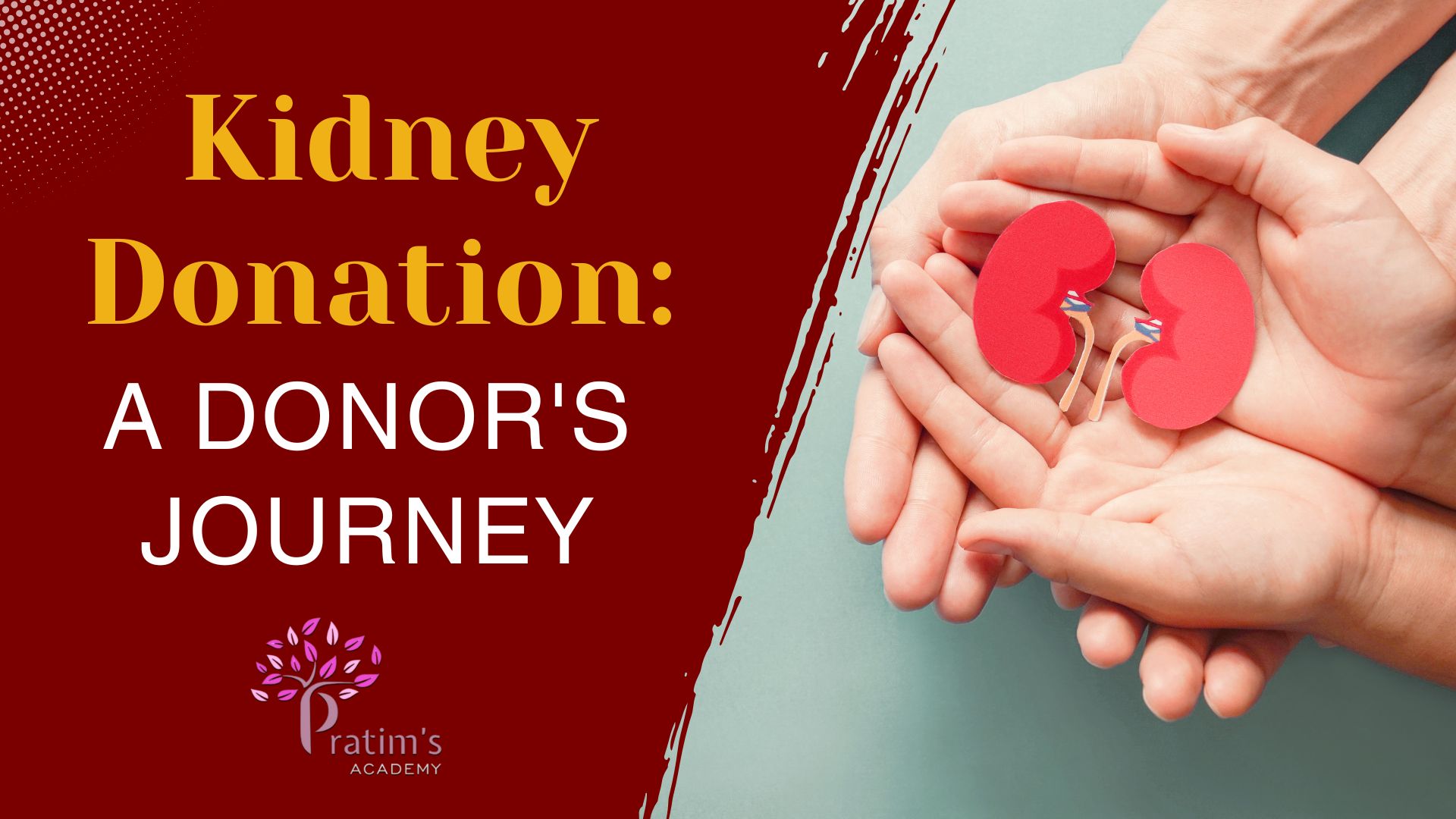Kidney Donation: A Donor’s Journey
Giving a kidney is one of the most altruistic choices a person can make. By becoming a living donor, you have the ability to significantly alter or even save the life of another individual. Although the decision to donate a kidney is profoundly personal, it is a journey brimming with optimism, kindness, and meaningful consequences. This blog aims to provide insights, stories, and valuable information for anyone contemplating kidney donation.
Why Donate a Kidney?
Each year, countless individuals experience kidney disease and depend on transplants for their survival. Regrettably, the wait for a kidney from a deceased donor can extend for many years. By opting to become a living donor, you can profoundly change someone’s life. Unlike several other organs, a healthy individual can function well with only one kidney, making this act of donation both viable and incredibly selfless. Here are some key reasons why people choose to donate:
- Life-Saving Impact: A kidney transplant can greatly enhance the quality of life for the recipient by removing the need for dialysis, enabling them to enjoy a more typical and active lifestyle.
- Reduced Waiting Periods: By choosing to donate, you contribute to decreasing the lengthy transplant waitlist, offering hope to those patients who could otherwise face years of waiting for a kidney from a deceased donor.
- Personal Satisfaction: Numerous donors express that the experience is incredibly fulfilling, as they recognize that they have made a significant difference in someone else’s life.
The Kidney Donation Process:
If you’re thinking about donating a kidney, here’s a summary of what you can anticipate:
Phase 1: Initial Assessment
The journey begins with a thorough medical evaluation to assess your overall health and compatibility with the recipient. This phase includes:
- Blood and Urine Tests – To check organ function, metabolic balance, and screen for infections.
- Cardiac and Pulmonary Evaluation – Ensuring heart and lung health.
- Imaging Studies – A detailed look at kidney structure and function.
- General Health Screening – Covering vital parameters to confirm suitability.
- Donor Interview – A discussion with medical professionals and legal guardians.
Phase 2: Comprehensive Testing
Once the initial tests are satisfactory, further advanced screenings are conducted, including:
- Tissue Compatibility Tests – To evaluate the likelihood of a successful transplant.
- Immune System Evaluation – Checking for pre-existing antibodies that may affect the procedure.
Phase 3: Additional Health Checks
Before final approval, a few more assessments are required:
- Kidney Function Analysis – Ensuring optimal filtration ability.
- Liver Function and Metabolic Profile – Assessing overall organ health.
- Neurological and Special Tests – If required, based on prior findings.
Phase 4: Legal and Administrative Clearance
- Documentation Process – Includes filling out required legal forms and submitting domicile proof for the donor, recipient, and guardian.
- Government Authorization – The transplant coordinator submits documents to the health authority, and after verification (which may take 1-2 months), a final board meeting is conducted for approval.
- No Objection Certificate (NOC) – Once cleared, the final step before scheduling the surgery.
Special Considerations (If required)
- Pregnancy Test & Recipient Evaluations – Additional medical reviews for specific cases.
- Specialist Consultations – Urologist, transplant surgeon, anesthetist, and psychiatrist assessments for both donor and recipient.
The Healing Process
After surgery, donors typically recover within a few weeks and can return to their normal routine. Long-term health remains stable with proper follow-up care.
By stepping forward as a donor, you are offering someone a second chance at life—an incredible gift of health and hope!
Final Thoughts:
Choosing to donate a kidney is a profound decision that can profoundly impact lives. If you’re thinking about becoming a donor, take the time you need to gather information, ask questions, and connect with a transplant center for guidance. Your kindness could be the miracle that someone desperately needs. To pledge your organs and tissues for donation, register with the National Organ and Tissue Transplant Organization (NOTTO)—a national-level body under the Directorate General of Health Services, Ministry of Health and Family Welfare, Government of India. Visit https://notto.abdm.gov.in/register to complete your registration.
Deciding to donate a kidney is a highly personal choice, yet it holds the power to change lives for the better. Whether you choose to help a friend or a stranger, your selflessness can provide someone with the invaluable gifts of health and renewed hope.
REFERENCES:
- www.sciencehistory.org
- www.organindia.org
- https://www.kidneyfund.org/kidney-donation-and-transplant/organ-and-tissue-donation/what-consider-donating-kidney
- https://www.kidneyfund.org/kidney-donation-and-transplant/preparing-your-living-kidney-donation
- https://www.mediclinic.co.za/en/infohub-corporate/healthy-life/live-kidney-donation-in-south-africa.html
- https://www.notto.mohfw.gov.in/index.htm
- https://www.nhsbt.nhs.uk/organ-transplantation/kidney/receiving-a-kidney/living-donor-kidney-transplant/



